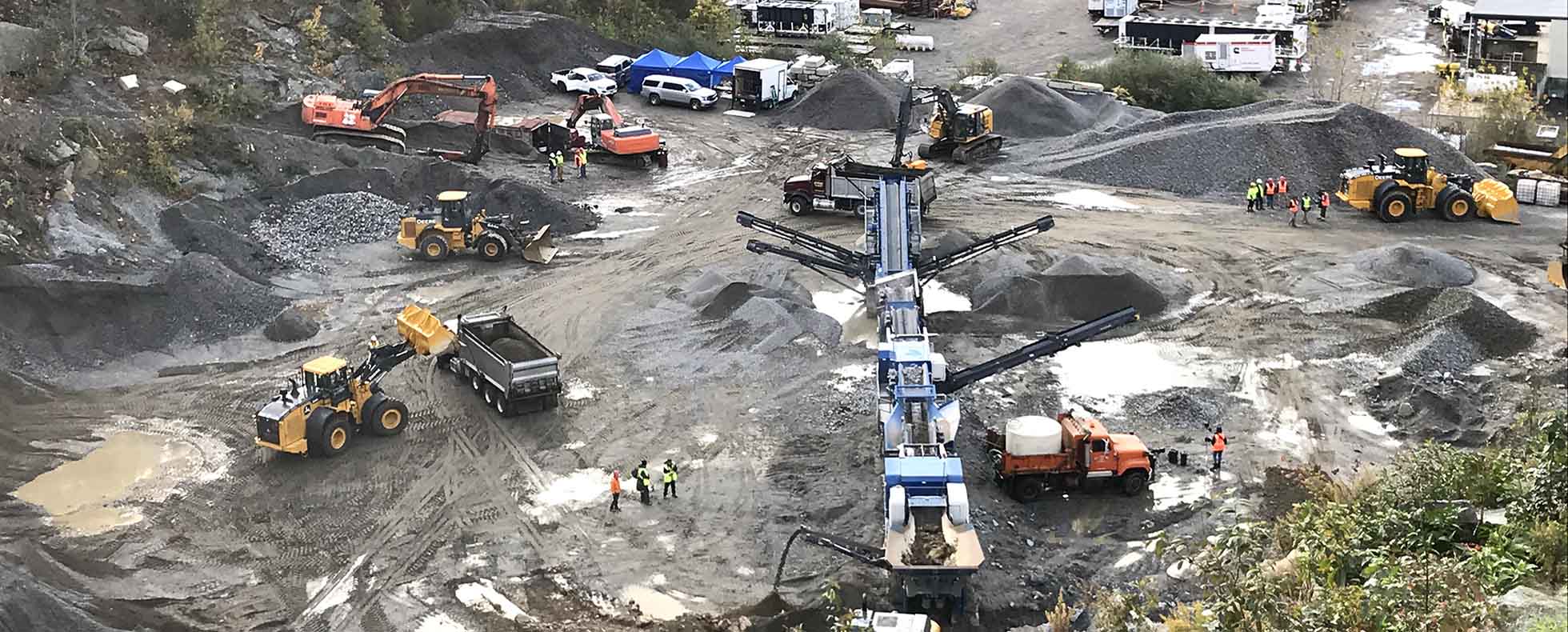
I've been spending lots of time in Utah, and among the many takeaways is the steadily increasing value of Crushers to a roadbuilder's fleet. What does Utah have to do with Crushers? Historically, Utah's aggregate market has been robust due to the state's growing construction and infrastructure development. The demand for aggregates, including sand, gravel, and crushed stone, has witnessed steady growth in recent years due to population growth, housing projects and infrastructure investments due to an increase in government spending.
In fact, the U.S. Department of Transportation’s Federal Highway Administration (FHWA) announced $61 billion in funding for critical road, bridge and tunnel projects as part of the historic Infrastructure Investment and Jobs Act (IIJA). All 50 states are expected to receive some of these funds to improve transportation systems. Most state and regional road-building projects include sustainable construction requirements, with some bids requiring a percentage of recycled aggregates, like Recycled Concrete Aggregates (RCA). Even without government requirements, more and more roadbuilders are interested in RCA because it can decrease input costs and help them manage their bottom line.
People eager to take advantage of government funds and roadbuilding projects will be required to use equipment or technology that improves safety and reduces the amount of carbon emissions. From my time in Utah, I’ve spoken with roadbuilders considering adding Crushers to their equipment fleet. After a recent eight-store acquisition, RDO Equipment Co. locations in Idaho, Utah and Wyoming are open for business. This strategic move positions RDO to support customers in the Mountain region. Besides connecting customers from Southwest to the West in RDO’s 12-state footprint and adding more than 150 team members, this acquisition also doubled RDO’s inventory of Crushers. While working with team members based in Utah, I discovered Crushers are versatile machines that can be crucial for sustainable roadbuilding.
The Role of Crushers in Roadbuilding
Crushers, as we all know, make big rocks into little rocks. The quality of the aggregates depends on the processing, so original equipment manufacturers have developed Crushers in various sizes and capacities. Smaller models like Jaw Crushers cost the same as large trucks straight from the manufacturer - while extra-large Crushers can cost millions.
Crushers are separated into primary and secondary categories. As the name suggests, the following primary Crushers perform the first round of compaction.
Many government projects require a secondary Crusher to refine the aggregate to a predictable, uniform and material. The more uniform the material, the more likely operators will be able to compact materials together consistently and pave smooth roads. The less uniform the material, the more time pavers will take to find the right force to spread the concrete or the asphalt and build a lasting road. Roadbuilders can choose from one of the following secondary Crushers.
In states like Utah, Crushers will only become more valuable as contractors have access to the state's rich reserves of volcanic rock. Its natural pores and foam material characteristics, water absorption, and skid resistance make volcanic rock the perfect material for architecture, interior decoration and landscape roads. Contractors in Utah and its surrounding areas can visit with a trusted partner to learn more about Crusher machines and if it might be the right time to invest.
Take a walk around Kleemann Crushers with Utah-based contractor Trent Bess in this episode of The Track.